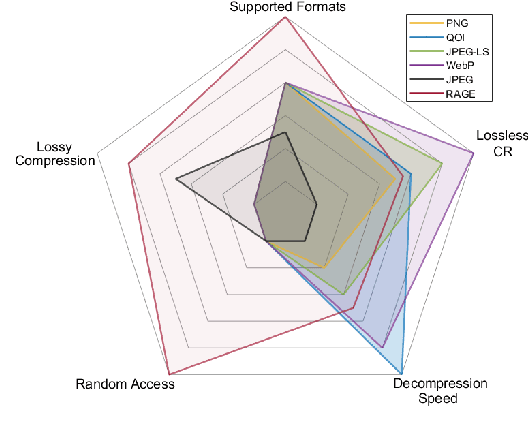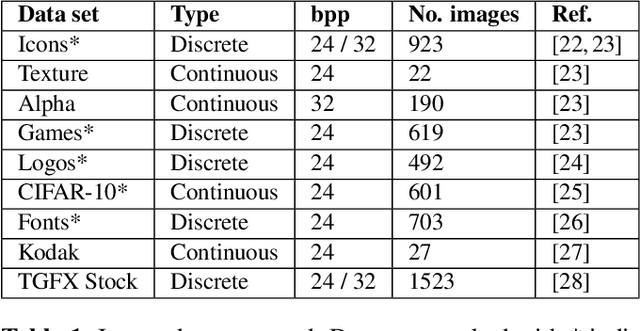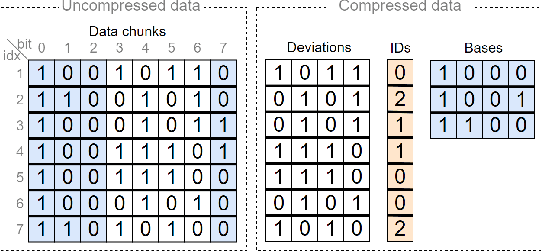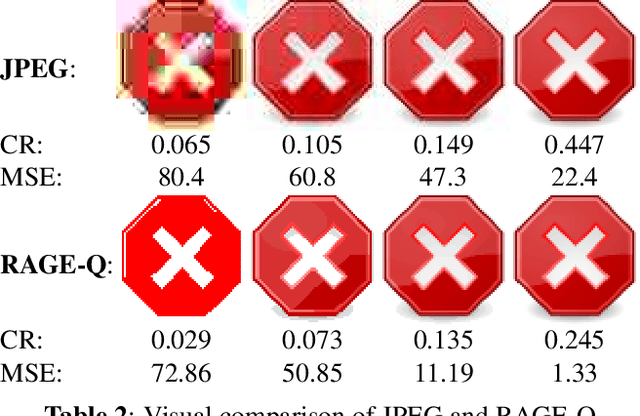RAGE for the Machine: Image Compression with Low-Cost Random Access for Embedded Applications
Paper and Code
Feb 07, 2024



We introduce RAGE, an image compression framework that achieves four generally conflicting objectives: 1) good compression for a wide variety of color images, 2) computationally efficient, fast decompression, 3) fast random access of images with pixel-level granularity without the need to decompress the entire image, 4) support for both lossless and lossy compression. To achieve these, we rely on the recent concept of generalized deduplication (GD), which is known to provide efficient lossless (de)compression and fast random access in time-series data, and deliver key expansions suitable for image compression, both lossless and lossy. Using nine different datasets, incl. graphics, logos, natural images, we show that RAGE has similar or better compression ratios to state-of-the-art lossless image compressors, while delivering pixel-level random access capabilities. Tests in an ARM Cortex-M33 platform show seek times between 9.9 and 40.6~ns and average decoding time per pixel between 274 and 1226~ns. Our measurements also show that RAGE's lossy variant, RAGE-Q, outperforms JPEG by several fold in terms of distortion in embedded graphics and has reasonable compression and distortion for natural images.
 Add to Chrome
Add to Chrome Add to Firefox
Add to Firefox Add to Edge
Add to Edge